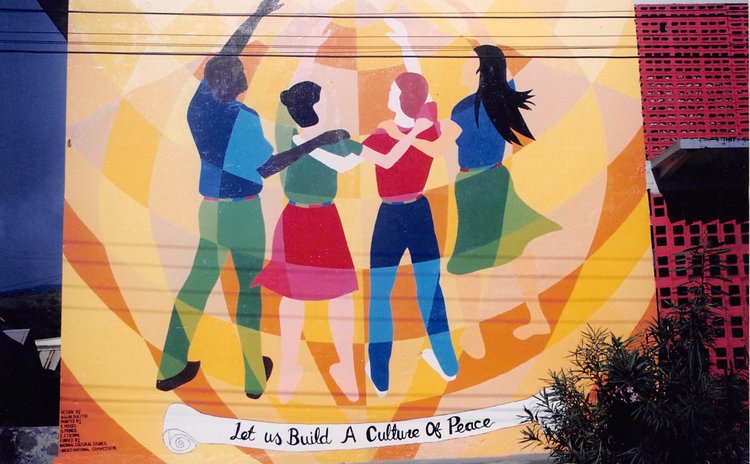The art of relationship

No one will dispute that there are serious problems in Dominica which must be solved if this country is to be the beautiful country that we intend it to be. The main problem is that we do not properly identify the most important problem which needs to be tackled. Either through unwillingness or involuntary blindness we do not see the issue of a lack of harmonious relationship as the top priority.
Many will trumpet the lack of productivity as the main national concern. As important as it is for national development, it cannot be the most crucial issue. What could well occur, as has happened in some countries, is that all the gains achieved throughout decades of material development could be nullified by a few days of national unrest.
Peace in any age is a very rare commodity. It is a blessing which is far to seek. Yet, deep within our hearts, we yearn for peace. We sense that we are made for peace. However, the peace which we so desire we endeavour to achieve at our own price. And this is what causes the trouble in society. We cannot have peace at our own price. Peace is a gift of God, and we have to conduct our lives in a manner which is a response to that generous gift. If we refuse to do that, we shall have endless wars—family wars, community wars, national wars, international wars.
Usually, we express consternation at acts of violence and bloodshed. Yet, we do so only when we behold the end game. All the while, we were silent, as if all was well. When we behave in this manner, we clearly indicate that we are all the guilty ones. Any society is the sum total of individuals. The actions of a society express well the kind of persons who form that society. People are much more guilty than is often assumed. There are many attitudes and activities which are not deemed to be criminal, yet they are as destructive of harmony in a society as much as criminal acts.
We are all part of the violence that marks the history of the world. Verbal violence and physical violence have the same source. They both spring from an endeavour to destroy another person. I am often flabbergasted by the experience of apparently well-meaning persons who feel quite comfortable with the use of abusive and threatening language. Even our pulpits are not immune from this disastrous pursuit!
Some years ago, I watched a game of hockey between the Belgian national team and the Russian national team. Towards the end of the match, a Belgian player attacked a Russian player, punching him on the nose, which caused a flow of blood. When asked for the reason for that display of aggression, his reply was that it was merely frustration. We may add: a lack of self-restraint.
We need a heavy dose of self-knowledge. We are by nature rational beings. This is what distinguishes us from the rest of the animal kingdom. Yet, very often we behave irrationally. Anger can be like a beast within which seeks to devour any human being in its path.
Public violence should teach us an all-important lesson. Very early, children must be taught self-discipline and control of their emotions. This should be continued in our schools. Throughout the world, confrontation is the order of the day. Public figures should learn not to play upon the emotions of people with aggressive intent. This could have unforeseen disastrous effects.
One of the most important lessons to be learnt is the art of relationship. This does not come naturally. We have to work hard at it. Harmonious relationship demands respect for others and a willingness to listen to others. It entails recognizing the dignity of every person and respecting his or her rights. A depth of humility is needed in our relationships. We need to get rid of the desire to crush those who do not comply with our wishes or those whom we perceived to be a threat to our progression.
Often, when there is unrest in a country, there is a cry for peace. However, it must be borne in mind that the real disturbers of the peace are those who refuse to recognize the legitimate rights of others. Harmonious relationships in society can be achieved only when people are accorded the remuneration which is due for their labour, and when the management of the economy is such that the necessary goods and services and the conditions of work are provided for those who promote the welfare and the education of the people, maintain law and order and operate the machinery of Government.